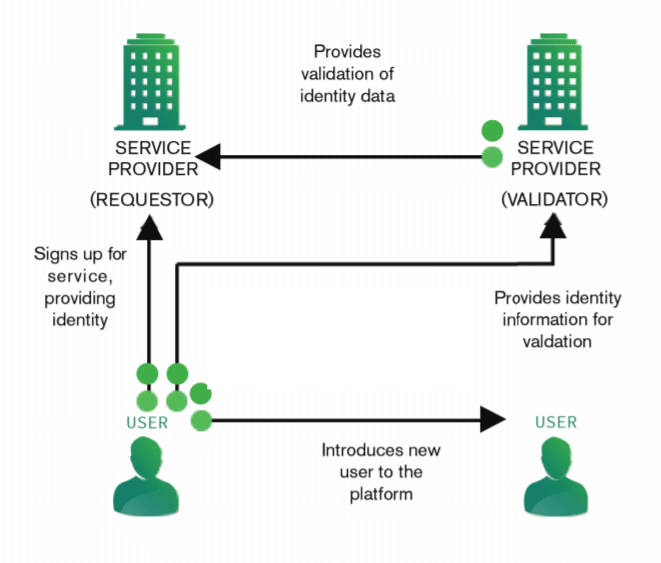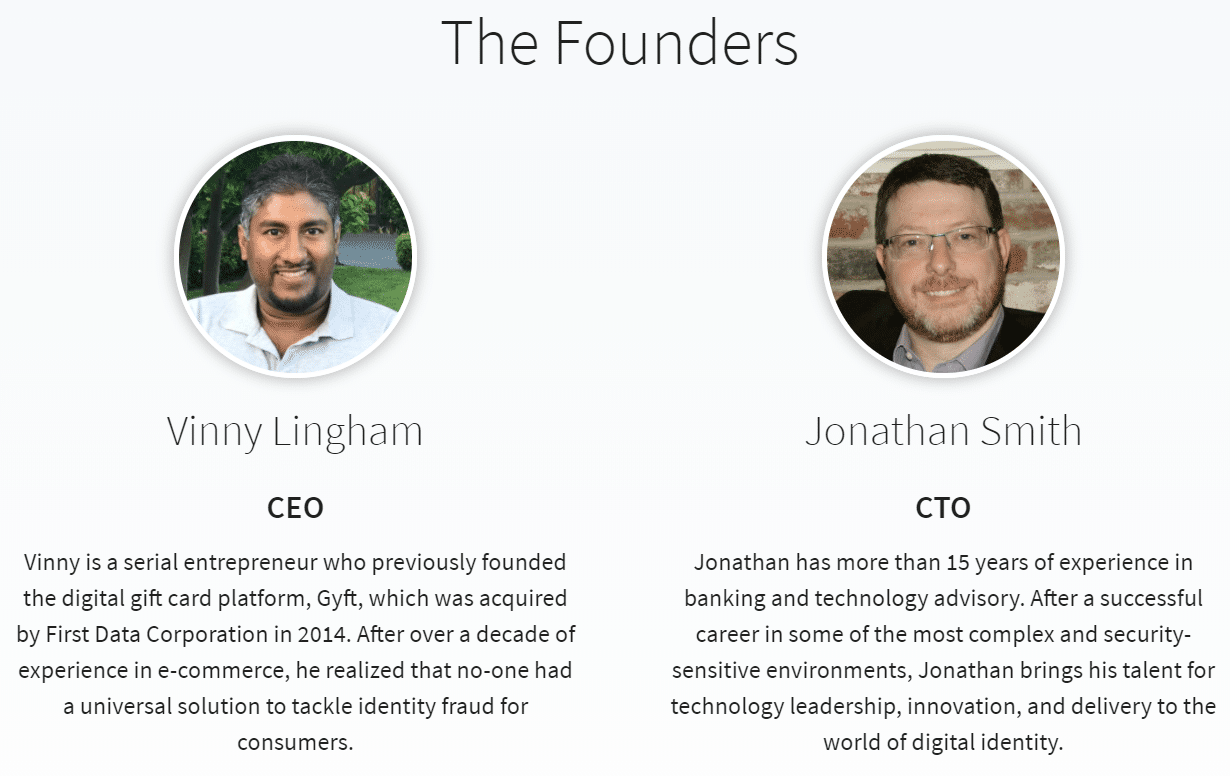
What is Civic (CVC)?
Civic is a personal identity verification protocol that leverages distributed ledger technology to better manage digital identities. As with blockchain projects focusing on supply chain management for consumer products, Civic envisions a safer, cheaper, more efficient identity verification method for individuals and industries around the globe.
Imagine how many times you’ve had to go through a Know Your Customer (KYC) verification process. Whenever you apply for a new job, open a bank account, or participate in an ICO, you have to submit proof of identity and wait for it to be verified. Depending on the service, this could take days or weeks, as organizations have to spend the time and resources authenticating this information with outdated systems.
Civic is offering a new-age solution to this problem, one where a single input of your personal identity information allows any organization or service to cross-check it on the blockchain without asking you to provide the same data twice–personal identity verification that is transferable from one service to another.
How it Works
Civic’s network accommodates three different–but interdependent–individuals/entities: users, validators, and service providers. The users are anyone who wishes to use the protocol to register an identity, and Civic makes this easy and safe with its Secure Identity app.
Validators are responsible for verifying an identity’s authenticity on the blockchain’s distributed ledger. They can then sell this information to service providers who need to verify their customer’s identities, exchanging the data for CVC. Civic is built on the Ethereum blockchain and uses smart contracts to oversee data attestation and payout for this work.
Secure Identity App
To get started with Civic, you need to download the Secure Identity app, either in its or mobile or web form (or both). Setting up the application, you enter a variety of personal identity information, including your name, address, social security or tax identification number, passport number, driver’s license, etc. Without utilizing usernames and password, multi-factor biometrics, such as fingerprint scan, secure the application to keep it fully in your control.
The application also encrypts personal information with a private key issued by a third party wallet; this provides a buffer between Civic and its users, giving you the peace of mind that Civic won’t access personal identity info without your consent.
In fact, Civic doesn’t store any personal information on the blockchain directly. Instead, it stores attestations of this information for reference. Storing references to the data instead of the data itself ensures that you are always in control of your own sensitive identity information, while also providing proof that the validators have confirmed the authenticity of your data.
Secure Identity Platform and Ecosystem
As we went over earlier, validators and service providers make up the other half of the network. Whereas the Civic app accommodates users on the front-end, validators and providers are responsible for back-end services, including identity attestation and KYC confirmation.
Validators are responsible for verifying identities for the network, both on the blockchain and for service providers. If a user wants to submit personal identity information to a service provider (e.g., an exchange, a bank, etc.), she submits the relevant info from her Civic app to a validation contract. These smart contracts act as escrow services for the transaction and provide validators with the identity data. After attesting that the information is authentic, the validators hash it onto the network. 
Something to note: a validator could be the service provider itself, and for a user identity’s first commit to the network, it likely would be. Moreover, in order to confirm a user’s identity, validators need to crosscheck his information with some other source (e.g., public records, financial records). A government, for example, would provide a wealth of information as an identity authenticator.
Once a validator verifies identity information, other service providers can buy access rights to this information on behalf of a user with CVC, Civic’s utility token. Validators can also sell rights to the information, with the user’s consent, on the Civic Marketplace. When a service provider pays for identity information, the CVC are placed in the validation contract, and once the validator provides proof of the identity information, both it and the user receive CVC in return. This service is flexible, too, as validators can pick and choose which information to verify per a service provider’s request.
Say a service provider, like a credit score company, needs access to a client’s credit history and bank account information. After communicating with the user, the service provider would submit a data request to a prior validator, maybe a credit card company, bank, or other financial institution. This validator would retrieve the hash for the requested information from the blockchain to attest it with the information that the client currently provides. If everything checks out, the validator is paid for these services (as is the user) and the service provider approves the client’s identity.
Civic Team and Roadmap
Co-founder and CEO Vinny Lingham is a serial entrepreneur with over ten years of e-commerce experience. A member of the Bitcoin Foundation, he’s also one of the sharks on Shark Tank South Africa.
Jonathan Smith, the project’s CTO and co-founder, has more than 15 years of experience with developing, technical analytics, and management for entities like Deloitte and RBS.
Civic already has a working product in its web and mobile app, and if you wanted to today, you could submit information to the network for attestation–so long as there’s a validator to verify it. Down the road in 2018, the team hopes to integrate fiat markets for its services and launch a fully functional marketplace by the end of the year, according to the project’s roadmap.
Trading
Where to Buy CVC
Huobi dominates the market, accounting for more than 75% of the token’s 24 hour volume in either BTC, ETH, or USDT. If you don’t have a Huobi account, Bittrex has the next highest volume with BTC and ETH pairs.
Where to Store CVC
As an ERC20 token, you can store CVC in an Ethereum wallet (MyEtherWallet, Ledger Nano S, Trezor, MetaMask, to name a few).
Final Thoughts
With Civic, reusable KYC and personal identity information could streamline identity verification for any relevant service. Service providers don’t have to expend the effort and money to verify a user’s identity; as long as a validator on the network has done the legwork for them, they need only pay a fee in Civic to have the information processes in real time. Users also don’t have to recommit the same information to different organizations in tireless succession–saving time and effort.
Behind all of this is the promise of greater identity security and integrity. The Civic app’s encryption and biometric locking mechanisms give users complete control over their identities, while the blockchain’s own encryption and distributed nature keep this information free from theft and exposure without user consent.
The post What is Civic (CVC)? A Beginner’s Guide to Blockchain Identity Verification appeared first on CoinCentral.

Coincentral.com is author of this content, TheBitcoinNews.com is is not responsible for the content of external sites.
Our Social Networks:
Facebook Instagram Pinterest Reddit Telegram Twitter Youtube












